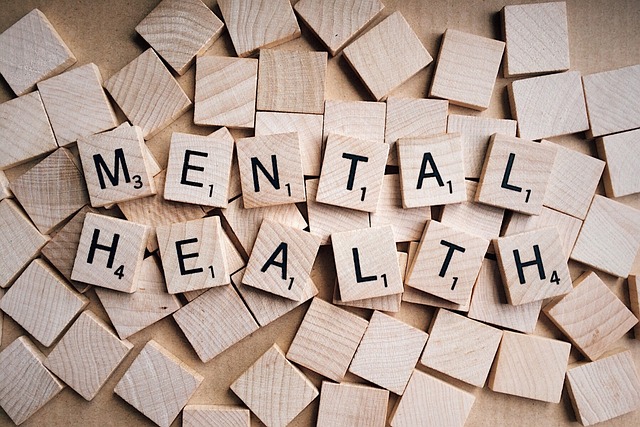Trauma significantly impacts mental health, leading to conditions like anxiety, depression, PTSD, and bipolar disorder. Northglenn Bipolar Disorder Therapy offers a specialized, holistic approach using evidence-based techniques and self-awareness exercises to support individuals dealing with bipolar disorder. This program combines stress management, compassion cultivation, and journaling exercises for comprehensive care. Key components include risk assessment, community workshops, and self-esteem improvement techniques tailored to unique needs, making it easier for Northglenn residents to access help through local resources and online platforms.
Trauma can profoundly impact mental health, making specialized support services crucial. This article explores the understanding of trauma, its effects on well-being, and highlights a dedicated resource: Northglenn Bipolar Disorder Therapy. We’ll delve into key components defining effective trauma support, guiding you through navigating local therapy resources. By shedding light on these aspects, we aim to empower individuals seeking healing, with a special focus on the unique services offered by Northglenn, catering specifically to those dealing with bipolar disorder in the context of traumatic experiences.
- Understanding Trauma and Its Impact on Mental Health
- Northglenn Bipolar Disorder Therapy: A Specialized Service
- Key Components of Effective Trauma Support Services
- Accessing and Navigating Trauma Therapy Resources in Your Community
Understanding Trauma and Its Impact on Mental Health

Trauma is a profound and complex experience that can profoundly impact an individual’s mental health and overall well-being. It refers to a deeply distressing or disturbing event, often involving life-threatening or high-risk situations. The effects of trauma are far-reaching, affecting not just the present but also shaping future behaviors, emotions, and perceptions. Individuals who have experienced traumatic events may struggle with various mental health concerns, such as anxiety, depression, post-traumatic stress disorder (PTSD), and even bipolar disorder, as seen in Northglenn Bipolar Disorder Therapy services.
Understanding trauma is crucial in providing effective support. Self-Awareness Exercises can help individuals process their experiences and emotions associated with the trauma. By fostering mental wellness, these exercises encourage people to confront and make sense of their feelings, leading to better coping mechanisms. Additionally, Social Skills Training plays a vital role in helping survivors rebuild relationships and navigate social interactions, which are often challenging after traumatic events. This holistic approach ensures that individuals receive comprehensive care tailored to their unique needs.
Northglenn Bipolar Disorder Therapy: A Specialized Service

In Northglenn, a specialized service stands out for its focused approach to Bipolar Disorder Therapy. This unique offering caters specifically to individuals grappling with bipolar disorder, a mental health condition characterized by extreme mood swings. The therapy program is meticulously designed to provide tailored support, addressing the distinct challenges faced by those with this disorder. By employing evidence-based techniques and incorporating elements like Stress Management and Compassion Cultivation Practices, Northglenn Bipolar Disorder Therapy offers a comprehensive solution.
The specialized nature of this service extends beyond traditional therapy models, integrating Mental Wellness Journaling Exercise Guidance to empower clients with self-awareness tools. This holistic approach not only helps individuals manage their symptoms but also fosters resilience and enhances overall mental wellness. Through dedicated professionals who bring expertise and compassion, Northglenn Bipolar Disorder Therapy is making a significant impact in the community, providing a beacon of hope and support for those navigating this complex condition.
Key Components of Effective Trauma Support Services

Effective trauma support services are multifaceted and tailored to meet the unique needs of individuals experiencing trauma. One key component is Northglenn Bipolar Disorder Therapy, addressing the underlying mental health conditions often associated with trauma, such as bipolar disorder. This holistic approach ensures that clients receive comprehensive care beyond immediate crisis intervention.
Additionally, integrating risk assessment for mental health professionals is essential to ensure safe and effective practice. Services should also offer proactive strategies like stress management workshops organized within the community, empowering individuals with coping skills to manage trauma’s lasting effects. Self-esteem improvement techniques can play a vital role in rebuilding resilience and fostering a sense of agency among survivors.
Accessing and Navigating Trauma Therapy Resources in Your Community

Navigating trauma therapy resources can be a challenging yet crucial step towards healing for individuals struggling with conditions like bipolar disorder. In Northglenn, there are numerous options available to support residents in their mental wellness journey. Local community centers and mental health clinics often provide a range of services tailored to different needs, from individual therapy sessions to group support groups. These resources cater to various stages of recovery, offering specialized care for those dealing with trauma-related challenges.
For those seeking Northglenn bipolar disorder therapy, starting the search can be intimidating. A simple online query might yield an overwhelming number of results. To streamline this process, consider reaching out to local healthcare providers or consulting mental health awareness platforms that offer guidance on accessing services. Many communities also have dedicated hotlines or online portals where individuals can find emotional regulation techniques and even mental wellness journaling exercise resources. These initiatives ensure that help is not only available but easily accessible for those in need.
Trauma support services, such as those offered by specialized centers like Northglenn Bipolar Disorder Therapy, play a pivotal role in helping individuals navigate and recover from traumatic experiences. By understanding the impact of trauma on mental health and implementing key components like safe spaces, evidence-based therapies, and compassionate support staff, these services empower people to heal and rebuild their lives. Accessing local resources can be transformative, offering much-needed guidance and care. Remember that seeking help is a sign of strength, and with the right support, healing from trauma is achievable.














